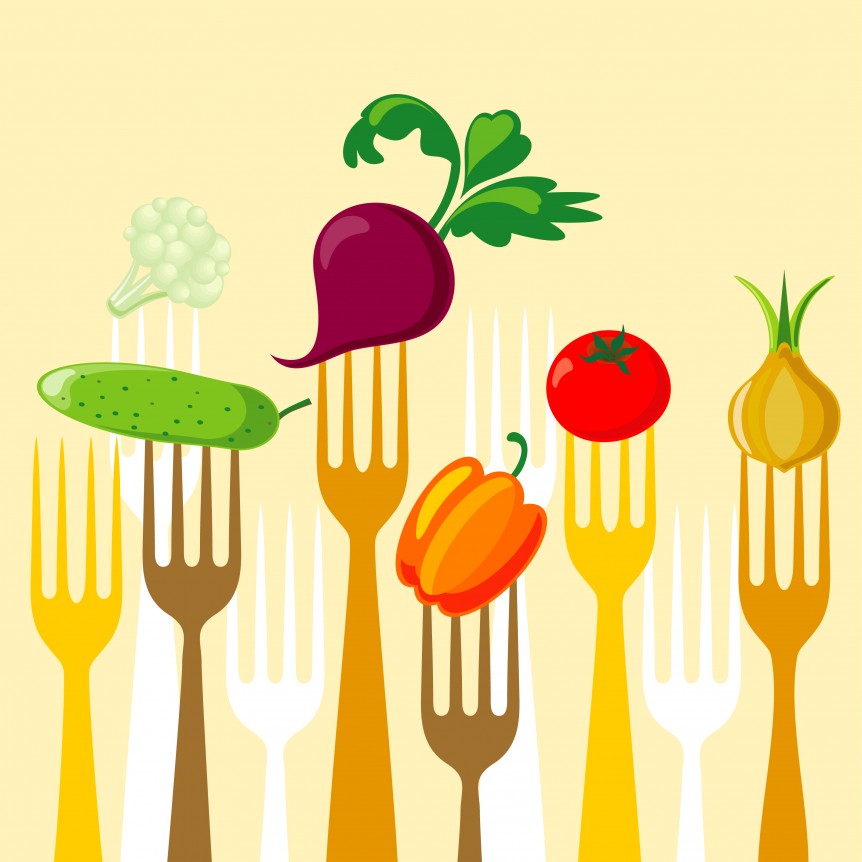
March marks National Nutrition Month
By: Noelle Harada, Contributing Writer
Featured image courtesy of goodsamatlanta.org
The Academy of Nutrition and Dietetics is celebrating National Nutrition Month this March, and invites Towson students to participate. The theme of this year’s National Nutrition Month, Go Further with Food, encourages you to adopt a healthier lifestyle while reducing food waste. To get started, focus on eating a variety of healthful foods, buy foods that you will eat/freeze before they spoil, consider the foods you have at home before buying more at the store, and be mindful of portion sizes.
Starting the day with a healthy breakfast is the first step toward fueling yourself to go further. College students have notoriously busy schedules filled with classes, clubs, sports, events, studying and volunteering. In the midst of your busy schedule, proper nutrition and healthy food can get pushed to the wayside, but eating a variety of nutritious foods will allow you to perform better in your academics and extracurricular activities. Eating a well-balanced breakfast gives you energy to start the day, helps you stay focused and keeps you from crashing during your afternoon lab. Your breakfast should consist of some type of protein, grain (especially whole-grain), and fruits/vegetables. Some ideas to begin your day include instant oatmeal made with low-fat milk and dried fruit/nuts; plain low-fat yogurt layered with cereal and berries; a waffle with peanut butter and banana; a whole-wheat pita stuffed with eggs and low-fat cheese; or an egg with low-fat cheese on an English muffin. Waking up a few minutes earlier to fuel your body can propel you toward a successful day.
Along with breakfast, choose healthy snacks to power you through your agenda. Snacks can fit into a healthy lifestyle and give you a boost of energy between meals– allowing you to go further. When choosing snacks, make smart decisions by avoiding added sugars and saturated fats. To keep snacks healthy and in-check, plan and portion your snacks ahead of time. You can make your own trail mix, whirl up a smoothie with fruit and fat-free milk, munch on air popped popcorn (which doubles as a whole grain), dip apples in peanut butter, serve chopped vegetables with hummus, or dip graham crackers in low-fat vanilla yogurt.
Healthy breakfasts and snacks are a good start to going further, but this year, National Nutrition Month is about more individual health. It encourages you to go beyond fueling yourself and promotes the creation of a healthier planet and situation for those around you. Food waste is a growing problem in the United States. It occurs when an edible item goes unconsumed; it can happen when you throw away uneaten food from your plate or when you buy too much produce and it spoils before being eaten. According to the National Resources Defense Council, getting food from the farm to the table uses about 10 percent of the total U.S. energy budget, 50 percent of U.S. land and 80 percent of all freshwater consumed in the U.S. Many of these resources are put toward food that, in reality, goes uneaten. Reducing food losses by just 15 percent would be enough food to feed more than 25 million food insecure Americans every year.
Mounting food waste upsets the economy, food prices for consumers, the environment, and those who are food insecure. In order to limit your contribution to food waste, plan meals and snacks in advance, use foods that you already have on hand, find recipes to fit what you have, stick to your shopping list, learn to store produce properly, freeze foods that you are not going to consume right away, and learn to love leftovers. If you are not a big fan of eating leftovers, get creative! You can transform leftovers into new meals; for example, use leftover rotisserie chicken in chicken tortilla soup, shred onto a salad, or use on sandwiches for lunch. Along with these tips, it is important to be mindful of portion sizes — choosing smaller portions can help reduce food waste and allows you to stay within your calorie needs. Be aware of how much food you put on your plate, especially in the dining halls on campus. Start with less and then go back for more if you are still hungry.

